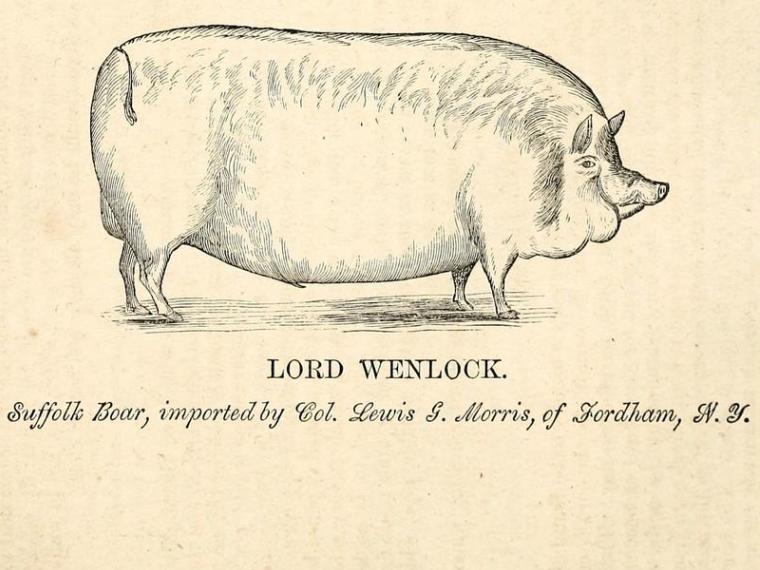Although Cincinnati was originally known as Porkopolis, Chicago took over as the country’s main meat packing center by the 1860s. This success was due to pigs which were little loved, but much eaten.
I have read a number of travelers’ accounts of life in the early 19th century West and Midwest. One example is A Woman's Story of Pioneer Illinois. The menu for breakfast, lunch and dinner was flatcakes and bacon. Occasional extravagant extras would include greens, milk, eggs, leavened bread or wild game. These writers weren’t food critics—an unnecessary occupation when the diet consisted of pork and flour—but I gather bacon referred to any salt cured pork, maybe even beef.
Meats were preserved by packing in salt. Additional steps such as smoking, boiling, adding saltpeter or storing in brine were necessary to prevent harmful bacteria. Fresh meat and sausage were also made, but didn’t store or ship as well. Preserved meat was shipped in wooden kegs.
Illinois in 1837 gives a brief description of the process: “Few families in the west and south put up their pork in salt pickle. Their method is to salt it sufficiently to prepare it for smoking, and then make bacon of hams, shoulders, and middlings or broadsides.”
Bacon was a product that could be shipped economically from the Midwestern prairies to the hungry eastern market. The first Chicagoan to tap into this market was Archibald Clybourn who in the 1820s won a government contract to supply salt pork to the Army. He built a slaughterhouse on the North Branch of the river near the street that bears his name.
Rival slaughterhouses were built on the South Branch and elsewhere. Farmers drove their pigs and cattle into Chicago from the surrounding prairie.
In later years pigs became a symbol of the frantic pace and mystique of the Chicago commodity markets. From 1961-2011 the Chicago Mercantile Exchange traded a contract for pork bellies. Pork bellies immediately caught the popular imagination and this mystifying product became synonymous with the Chicago futures markets.



Add a comment to: Pigs: Technology That Changed Chicago